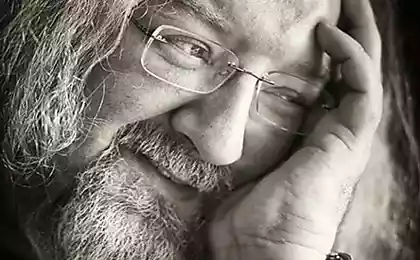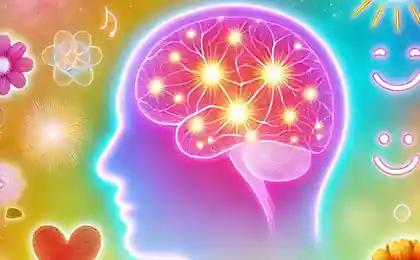217
The Inner Compass: How to Hear Your True Voice

Each of us carries within us an invisible compass – an inner voice that guides us on the path of true happiness and self-realization. However, in the noise of everyday life, this voice is often drowned out. How do you learn to listen and follow him? In this article, we will explore the psychological techniques of self-determination, share inspiring stories of people who have found their calling, and explore the scientific aspects of intuition and the subconscious. We will also offer practical exercises for setting up an internal tuning fork and will understand how to distinguish the real desire from the imposed one.
- Psychological techniques of self-determination
- Stories of people who have found their calling
- A Scientific View of Intuition and the Subconscious
- Exercises to adjust the internal tuning fork
- How to distinguish real desire from imposed

Psychological techniques of self-determination
Self-determination is the process by which a person becomes aware of their true desires, goals and values. There are many psychological techniques to help you better understand yourself:
- Meditation and Mindfulness: Practices aimed at calming the mind and increasing awareness help to hear the inner voice better.
- Diary of self-reflection: Writing down thoughts and feelings helps reveal hidden desires and needs.
- Visualization techniques: Representing yourself in different situations helps you understand what goals and dreams are really important.
- Cognitive behavioral therapy: It helps to identify and change negative beliefs that interfere with self-realization.
- SWOT personality analysis: Assessing your strengths and weaknesses, opportunities and threats helps to determine the direction of development.
“Understanding oneself is the first step to following one’s true path” – psychologist Anna Ivanova
Stories of people who have found their calling
Real-life stories inspire and show that everyone can find their true calling:
Irina, 35: “Working in the office, I felt something was wrong. One day I decided to take a vacation and go camping. In the mountains, I realized that my true calling was to help people through coaching and psychological support. I run my own business and feel fulfilled. ?
Dmitry, 28 years old: “I have always loved painting, but I thought it was just a hobby. One day I decided to try my hand at art therapy and found that I could help people cope with emotional problems through art. It changed my life and allowed me to contribute to society. ?
“Stories of such people prove that everyone can find his calling if he listens to his inner voice,” mentor and coach Sergey Petrov.
A Scientific View of Intuition and the Subconscious
Intuition and subconscious play a key role in our decision-making. Scientific research confirms that intuitive processes can be just as important as rational ones.
- Neurobiology of intuition: Studies show that intuitive decisions are based on the rapid analysis of a large amount of information accumulated in the subconscious.
- Subconscious perception: Our brain processes information even without conscious attention, which affects our intuitive judgments.
- Emotional component: Emotions are closely linked to intuition, helping us respond quickly to changes in our environment.
- Cognitive Science Research: Scientists have found that intuitive decisions are often the right ones, especially in situations that require rapid response.
Interesting fact:
Research from Harvard University has shown that about 60% of our decisions are made at the subconscious level, without conscious thinking.
Exercises to adjust the internal tuning fork
Setting up the internal tuning fork helps you hear your true voice better. Here are some exercises that will help you with this:
- Mindfulness meditation: Daily meditation practice helps calm the mind and increase awareness.
- Keeping a diary: Write down your thoughts and feelings every day to better understand your inner desires.
- Practicing gratitude: Note the things you are grateful for every day, which helps you focus on the positive aspects of life.
- Visualization of objectives: Present your goals and dreams in detail to enhance their relevance to yourself.
- Yoga and breathing exercises: They help relieve stress and improve concentration, which contributes to a better perception of internal signals.
“Setting up an internal tuning fork is a process that takes time and practice, but the results are worth the effort,” meditation instructor Olga Smirnova said.
How to distinguish the real desire from the imposed
Sometimes it is difficult to know what you really want and what is imposed by external circumstances or expectations of society. Here are a few ways to distinguish the real desire from the imposed:
- Introspection: Ask yourself the reasons and motives for your desires. Why do you want this? What's behind this?
- Listen to your emotions: Real desires cause positive emotions and feelings of satisfaction, while imposed desires are often accompanied by anxiety or doubt.
- Time for reflection: Give yourself time to think and evaluate your desires. Real aspirations usually stay with you for a long time.
- Comparison with others: Do not compare your desires with those of others. Your goals should be personal and unique.
- Prioritization: Define your life priorities clearly and match them with your desires.
Expert advice:
Conduct regular introspection and reflection to better understand your true desires and avoid being influenced by external factors.
Conclusion
The inner compass is a powerful tool that helps us navigate our lives and make decisions that align with our true desires and values. By developing emotional intelligence, practicing self-determination and following our inner cues, we can achieve harmony and happiness. Remember that your true voice is always within you, and it’s important to listen and respect.
“True self-understanding is the key to achieving complete harmony and happiness.” – Alexey Lebedev, philosopher and psychologist
Start your journey to self-discovery today and you will be amazed at how much your life and the world around you can change.
Memory Energy: How Memories Literally Change the World
The Happiness Code: The Secret Algorithms of Human Joy























